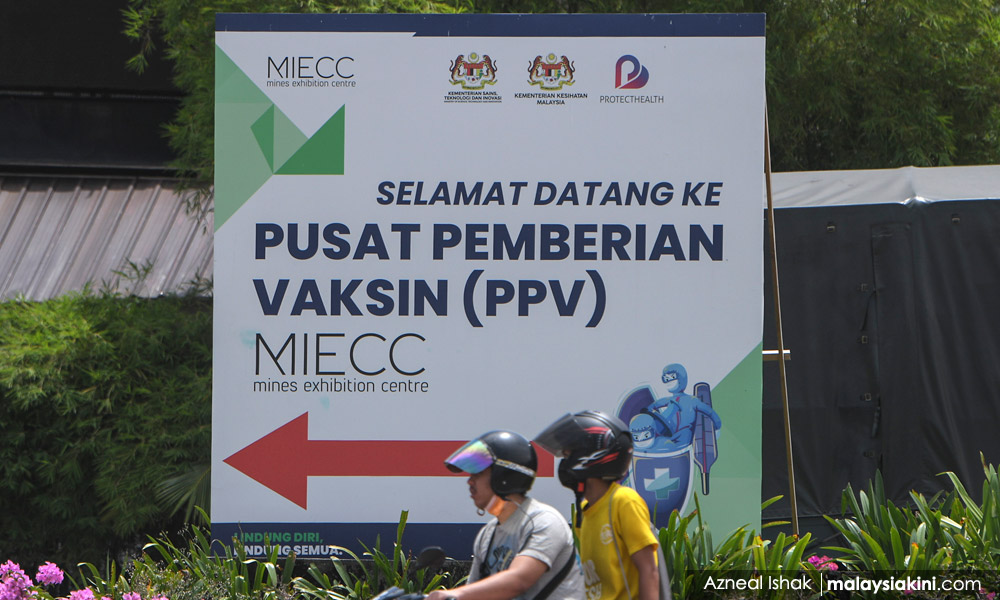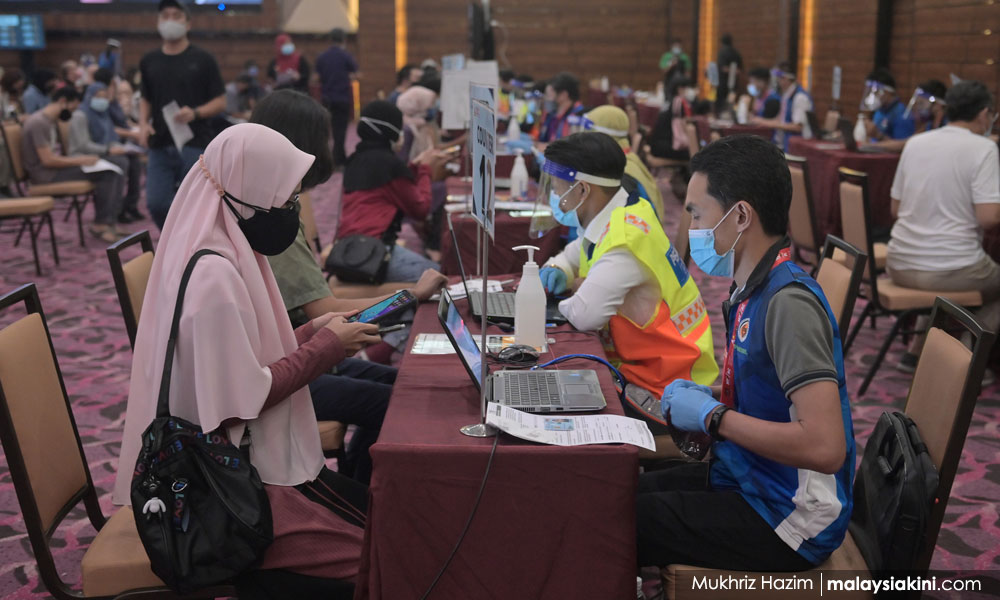As the government moves towards implementing Covid-19 vaccine mandates in certain sectors and areas, a law firm is now in the process of canvassing for plaintiffs to file a class action suit against such mandates.
The effort is being conducted through a public Telegram channel, with the coordinator being lawyer SP Chanravathane.
“This is a group for people who wish to come together to take legal action against the Malaysian government to nullify vaccine mandates.
“We formed this group to make a class action against the authorities to stop discrimination,” said Chanravathane in several Telegram messages in the channel.
This comes after the Sarawak government announced last Monday that only individuals who have been fully vaccinated against Covid-19 are allowed to work or enter any business premises in the state, with exceptions being given to those with one dose of the vaccine until the end of August.
In late July, it had also been reported that the Domestic Trade and Consumer Affairs Ministry was in the process of making the vaccination of all retail sector employees one of the prerequisites before the businesses are allowed to reopen throughout the duration of the National Recovery Plan (NRP).
In messages sent to the group, Chanravathane said vaccination is voluntary and any attempt to coerce individuals into accepting the jab is illegal and against the fundamental rights of a person as enshrined in the Federal Constitution.

When contacted by Malaysiakini about her efforts in planning a class action suit, she declined to comment further.
“Nothing is finalised and at the moment I have no comments.
“And it is not me, I am acting for a group of concerned citizens,” she said.
At the time of writing, the group had close to 2,900 subscribers, many of whom expressed their dissatisfaction with the vaccine mandate as well as concerns over the safety of the vaccine.
Interested individuals were asked to fill in a “client information sheet” provided in the group.
The sheet included a disclaimer that each participating individual would have to pay an initial sum of RM600 for research and material costs, on the basis that they can get at least 400 people to participate.
In another public Telegram group, another law firm has been offering its services in issuing legal letters to employers implementing the vaccine mandate at the workplace, on behalf of employees who do not wish to be vaccinated.
The group, which had slightly more than 30,000 members at the time of writing, is run by lawyer Norashikin Mohd Said.
In one of her messages in the group, which has now been set to disallow other members from posting anything, the lawyer offered her legal services for RM100 per name or letter issued.
In a recent message on Aug 23, Norashikin also said she would be opening up a priority list for the teachers who were summoned for an audience by Johor Crown Prince Tunku Ismail Sultan Ibrahim after they rejected the Covid-19 vaccination.
However, she declined to comment on the services she was offering when contacted by Malaysiakini.
“I only speak to my clients about my work, not to reporters,” she said.
The invite link to join the group was circulated widely in public Telegram channels on Aug 23, but the link has since expired.
Norashikin has also stressed to the more than 30,000 members of the group that it is a private group.
But other links to join Norashikin’s group, still available on public channels discussing vaccine side effects, are still working.
These vaccine mandates at workplaces have raised concerns over an employee’s right to refuse vaccination and the potential consequences they may have to bear for doing so.

Providing his expert opinion to Malaysiakini, employment lawyer Donovan Cheah said it is possible for employers to impose consequences on employees who refuse to be vaccinated, such as preventing them from coming to the workplace or even dismissing such employees.
“But whether this dismissal is fair or not will depend on factors such as the employee’s reason for refusal, the employee’s job functions or requirements to interact with high-risk individuals, the nature of the employer’s business and whether the authorities have made vaccination a precondition for the employer to operate,” Cheah said.
Generally, an employee must comply with their employer’s instructions, as long as they are reasonable and lawful, or risk dismissal or disciplinary action, he said.
However, Cheah noted that an employee may also have reasonable justifications to refuse vaccination, depending on the circumstances.
For example, he said, whether the employee has any health or medical condition that makes it unsafe for him or her to be vaccinated.
In terms of a compromise between employers and employees who refuse vaccination, Cheah cited Singapore as an example.
“In Singapore, for example, employers are recommended to adopt a ‘vaccine or regular testing’ regime, whereby medically eligible but unvaccinated employees can be subjected to regular testing at the employee’s cost,” he said.
He also suggested that among the legal avenues available to the employees, if they were to face consequences for their unvaccinated status, would be for them to lodge a representation of unfair dismissal, if they were dismissed from work.
If they were subjected to other consequences that the employees view as a breach of their contract of employment, the employees can also quit in protest and claim constructive dismissal, he said.
“It will be for the Industrial Court to then determine the matter,” Cheah added. - Mkini



No comments:
Post a Comment
Note: Only a member of this blog may post a comment.